- Home
- Perrin Briar
Z-Minus Box Set [Books 1-3]
Z-Minus Box Set [Books 1-3] Read online
Get Perrin Briar’s Starter Library FOR FREE
Sign up for the no-spam newsletter and get BLOOD MEMORY, THE SWISS FAMILY ROBINZOM and SQUARE and lots more exclusive content, all for free.
Details can be found at the end of the Z-MINUS.
Z-MINUS
Z-Minus 1
Z-Minus 2
Z-Minus 3
Perrin Briar
Z-MINUS I
DECEMBER 2013
Statistics from the World Health Organisation
EBOLA CASES: 1
EBOLA DEATHS: 1
Dr Victoria Kahn, Chief Medical Officer, Saint Bartholomew’s Hospital, from her article The Virus: Humanity’s Natural Archenemy
The most successful virus in the world will be one that keeps its host alive while simultaneously shutting down the body’s self-defences. It won’t be long before we have such a specimen on our hands.
Dr Barry Evans, naturalist, from her book Mind Control in the Animal Kingdom
There are some species of fish known to alter another species’ behaviour. They implant their eggs inside a fish and then make the fish suicidal, so they are easily caught by their natural predator, the heron. Once consumed, the eggs warm up and hatch. It is not beyond the realms of possibility that a virus might evolve to be able to do the same to us; to shut down certain systems, to control the host’s behaviour. In essence, we lose our minds to the virus’s whims.
Felix Nethershall, historian, from his Ted lecture The Virus & Technology: A Match Made in Heaven
The Black Death killed more than half the human population in the fourteenth century. Not only were we woefully ill-prepared for such an attack, we rather helped it along with our cooperative city living.
Despite our advanced technology, we are no better off when it comes to defence against this invisible killer. And with aeroplanes and the ease of moving across the globe, one can only imagine the terror it might bring upon us should we let it.
MAY 2014
Statistics from the World Health Organisation
EBOLA CASES: 396
EBOLA DEATHS: 202
The Daily Express, Ted Hughes, Health Correspondent, from his article entitled The Race We Didn’t Know We Were Losing
Despite all the advancements of the human race we have still not uncovered a cure for the common cold. While farmers force feed copious amounts of antibiotics to cattle in the never-ending quest to produce ever-larger specimens, and encourage deformities in animals to satisfy our own grotesque needs, we are ultimately strengthening disease and weakening ourselves in the process. [These] drugs then pass into the human food chain. Farmers have long known that bacteria and viruses can evolve at a much faster rate than other organisms. We are providing a species capable of rapid evolution with the resources it needs to develop faster than we can combat them with ever-stronger antibiotics.
Sooner or later we are going to fail to provide the right drug at the right time, and each day that passes we are drawing ever-closer to that moment.
Tweet conversation
@JamesLaker153 Is it normal to be bitten in bed by your girlfriend?!
@SysRq83 Only if you’ve used chocolate body paint
@JamesLaker153 She drew blood. Should I worry about tetanus?
Dr Jenny Packer, Oxford University, transcript of her lecture Why You Should Be Worried About The Plague
The spread of Spanish influenza in the nineteen twenties was truly prodigious. It can be matched only by the Plague in the fourteenth century, and the plague in the seventeenth. There is a cycle at work here. Whenever humanity reaches a certain level in regards to its population, the earth reacts and throws up a defence to protect itself. It is no coincidence that these moments occur precisely at the time our most significant cultural developments also occurred. Perhaps some of you think I’m looking at this with black dahlia-tinted glasses, that perhaps I actually want to see this information. Well, let me show you the facts. Take a look at this graph.
(Audience gasps and mumbles.)
This graph shows the greatest pandemics in our species’ history. With genetics and DNA testing we have been able to deduce that we as a species have undergone a huge external transitional change every few hundred years. And each time, it was worse. These are warnings. These are warnings from Mother Nature that we are approaching the precipice and that one of these days we’re going to go running over it.
JULY 2014
Statistics from the World Health Organisation
EBOLA CASES: 1,376
EBOLA DEATHS: 723
The New York Times, Jeffrey Dunne, from the Editorial
Once the providence only of impressionable teens and those with an over obsession with blood, we are seeing a rise in interest in the area of zombies. With the increase in recent years of the dystopian world hitting the big and small screen every holiday season, is there really any surprise? But there is no doubt in this Pulitzer prize winning journalist’s mind that one day the epidemic the likes of which the human race has never seen will strike.
If there’s any certainty in life, it’s that good things never last. As a species we’ve had a good run. Nature has provided us with an unprecedentedly long period of calm seas. We’ve enjoyed all the treasure nature has afforded us, but that time has passed. Our time has passed. Nature will now begin to take things away. I don’t know what will rise as the most dominate species on the planet after us, but I do know that when the final human dies on his bed of dried river reeds, he will look up at the ceiling of his cave and say, ‘What did we do wrong?’
SEPTEMBER 2014
Statistics from the World Health Organisation
EBOLA CASES: 6,506
EBOLA DEATHS: 3,450
www.ebolaawareness.com, anonymous post
Is anyone else scared?
Ladbrokes plc, gaming company
ODDS OF THE HUMAN RACE BEING WIPED OUT BY A COMET WITHIN THE NEXT TEN YEARS: 1,200,000,000 : 1
ODDS OF THE HUMAN RACE BEING WIPED OUT BY AN EPIDEMIC WITHIN THE NEXT 10 YEARS: 1,200 : 1
SPECIAL RATES FOR NEW CUSTOMERS!
Rev. J. Pickle, Saint Mary’s church, Cumbria, from her sermon
Matthew 24:29. Immediately after the tribulation of those days the sun will be darkened, and the moon will not give its light, and the stars will fall from heaven, and the powers of the heavens will be shaken.
OCTOBER 2014
Statistics from the World Health Organisation
EBOLA CASES: 8,000+
EBOLA DEATHS: 4,000+
Percy Plinkton, 15, 2nd place essay competition winner, from his essay entitled Mother Nature: A Firm Hand
It seems every year there is a new disease that spreads amongst the populations of the world, and it is only a matter of time before the ‘real deal’ hits our shores, and that will mark the end of the human race’s dominance of the earth.
We are only here at the kindness of Mother Nature. She has been very lenient with us. But every mother has her breaking point. One day, perhaps not too far in the future, a news story under an innocuous title will emerge, largely unnoticed. But it will have deep ramifications for the future of our species. It will not be Ebola. It will not be SARS. It will not be a strain of bird flu. It will be something else, something that will creep in the shadows and attack us without warning.
London Metro, from the World News section
AND FINALLY… THE HEART THAT SKIPPED A BEAT (OR 100)
Jeremy Sprite, 45, died yesterday at Addenbrooke’s hospital after complaining of chest pains, diarrhoea, cold sweats, and headaches. But after an incredible ten minutes of silence, his heart automatically restarted. Doctors were dumbfounded and unable to account for this apparent miracle. It is the l
ongest recorded example of the reanimation of a dead heartbeat. He will be released today.
Z-MINUS I
5:56AM
Chris’s eyes opened like rusty garage doors. The world was blurry through his slitted vision. He could make out a bright yellow-white light through the windscreen. A green light flashed on and off with a tick-tock noise. The curled glowing numbers arranged in a circle came in and out of focus in front of him. His head lolled back, and he fell unconscious again.
6:23AM
He opened his eyes again. The world had lost a shade of its fuzziness. The tick-tock noise and flashing green light never ceased. He turned his head to the side and felt a sharp stabbing pain in his back. He squinted with his eyes and made out the numbers. They were a speedometer.
He blinked, and the blurry, fuzzy world began to come into focus. It drifted in and out like it were warping around him. He looked to the side and saw the passenger seat was empty.
On the floor sat a dozen empty cans of Budweiser, White Lightning and Stella. He coughed with lungs that felt like they were full of tar. He could smell the sharp tang of fuel from somewhere near his feet.
Chris shook his head, the deep throbbing behind his eyes working its way to the back of his neck. He pulled at his legs but found they were trapped between the seat and the steering wheel, which had been forced forward and down, pinning his legs.
He squirmed, shifting his weight side to side. He pushed on the steering wheel and worked his legs free. His left leg came free first, and then his right. He laid back, his head on the headrest.
He looked over at the cans. He picked up a bottle of Bud and shook it. The little alcohol remaining inside tinkled. Chris drank it. He did the same with the other bottles and cans. There was barely a dribble left in any of them, but it made him feel better.
He pressed his weight against his door. It didn’t budge. He slammed his shoulder against it, harder. It creaked open with a crunch. He knocked his shoulder against it again, and it creaked open more. He pressed his hands to it, forced his weight onto it, and the door jerked wide open.
He fell out onto the ground, the movement sending streaks of pain up his back. He lay on the ground for a moment, unmoving. His back, neck and head felt wet. He reached back and touched his neck. His fingers came away brown with mud. The orange indicator light flashed.
He turned onto his front and pulled himself up the grassy verge. He got to his knees and retched. Orange and red semi-digested curry splattered. He spat out the lumps in his mouth.
Chris could hear the soft tinkling sound of water running over stones nearby. He got up, swayed slightly, and then carefully stepped over to the stream. It was shallow, but fast flowing. Even in the moonlight he could see it was clean. He leaned down and rinsed out his mouth, splashing it with vigour over his face.
He got up, a little steadier this time, and turned back to look at the car. It was jammed under a thick bough of a tree that stuck out at a right angle. The roof was buckled and all the windows, save the back one, were strewn with spider web-like cracks. The road was only fifty yards back. He must have fallen asleep at the wheel and driven across the field.
The high beams of his car cut a thick swathe through the darkness to the woods beyond. Chris bent down and pulled the key out of the ignition, and then killed the lights. He pushed the door closed, but it bounced off the bent frame.
He stepped toward the lane, feet slipping on the mud of the slight incline. He began to walk the long windy country road.
7:14AM
The country road joined the main ring road on the outskirts of Nottingham. The sun was just beginning to rise, stretching the pylon shadows across the road.
Chris checked both directions. He was surprised to find just one car. It zipped past him at what must have been over one hundred miles an hour. A speed camera flashed, but the driver didn’t slow down. Chris crossed the road onto Clifton housing estate.
The houses were two-storey terraces with small gravel front gardens. They were built back to back, like bouncers at a nightclub under attack. It was the kind of place where you wiped your feet off on the way out.
Chris walked up to a peeling green door. He stopped, and then turned and looked at the houses on either side of the street.
The estate was quiet. Too quiet. The constantly-present youth gangs on the street corners listening to music were not present. The motorbikes zipping up and down the road making drug drops were not zipping. Then something else caught his eye.
The windows of number forty-two were smashed, glass jutting like bad teeth. The ubiquitous red brick walls were splattered with patches of paint, except that it was off-colour to the earthy tones underneath, as if someone had started painting, and then given up.
Farther down the street, cars sat with their wheels leaning against the curb, the handbrakes disengaged. One car, an old Peugeot estate, was running, the engine ticking over silently but with no one behind the wheel. The driver side door had been thrown open.
Chris turned to his front door. He inserted his key into the lock and turned it. There was no click. He pushed the door with a finger. It creaked open. The early morning light spilled onto the living room floor, illuminating a pair of tube socks. Emily leaving her crap everywhere again, Chris thought.
He shut the front door and went into the kitchen. He filled up the kettle and placed it into the recharge unit at its base. He took a cup out of the cupboard and spooned three large heaps of coffee granules into it.
He opened the fridge and took out the remains of a birthday cake that had ‘Happy Birthday Maisie. 8 today!’ written on it. He placed it on the kitchen table and reached for a knife from the knife rack, but there were none. He opened the cutlery drawer and took out a regular dinner knife. He cut off a large piece of cake and picked it up with his hand.
He leaned against the counter and thought about what he was going to do with his car. He doubted if he could get it fixed up cheap. I’ll chop it up and sell the pieces on, he thought. Hopefully he’d make enough money to buy a cheap second hand car, but he doubted it. Maybe Wally could help him out-
The cake fell out of his hand and hit the floor, lumps of cream sputtering on his shoes. His eyes were wide, looking at something in the living room.
The kettle boiled and sent a thick cloud of steam out across the roof of the kitchen like something from a bad horror movie. The kettle didn’t click off due to a faulty sensor. The water inside bubbled away, spitting hot water out the lip. More steam poured out of it, but Chris was too enthralled to notice.
Emily’s school uniform socks were tucked into her pair of shiny black regulation shoes. They sat perched up, the soles facing the roof. The socks were thick and substantial, like they weren’t empty.
Chris stepped toward the living room, his footsteps ginger and reticent. The TV had fallen off its stand and sat screen-down on the carpet. The coffee table had been knocked aside. Chris rounded the worn felt sofa and, bit by bit, Emily’s body appeared.
First, the short black skirt, pinned up to expose more thigh to adolescent boys, the unflattering burgundy jumper that attempted to cover all natural bulges with rolls of its own, and then her matted hair, dyed black from its usual earthy brown. He could make out the stud piercings around the upper edge of her ears, but not the stud in her nose. Her black lipstick and eyeliner were smudged across the left side of her face.
Two knives jutted from her back, both buried near to the hilt. Another knife lay clutched in her chubby hand, the blood along its edge staining the grey carpet.
Chris kneeled down and pulled the hair off her face, as if clearing any doubt in his mind over who lay there dead on his living room floor. Her skin was pale and her eyes stared forever at something he couldn’t see.
“Emily…” he said.
His voice was a mixture of anger and confusion; confusion at who had killed her. She was a fifteen-year-old girl. What had she ever done to anyone? But mostly he felt anger. Anger at her for being so self
ish and weak to have let herself die.
He pressed the back of his fingers against the skin at her throat, but there was no pulse. She was as cold as ice. The muscles in Chris’s body tensed as he prepared for an attack. The assailant might still be in the house.
Throat tight, he climbed the narrow staircase that wound up to the first floor. The two doors on the landing were shut. Chris eyed the second set of stairs leading up to the second floor warily. He pushed the bathroom door open. It was empty. Ahead of him was the main bedroom. He pushed the door open and went inside.
His body shook, and he stepped back, his back finding the wardrobe. Lying on the bed, spread-eagled naked, was another body, a body he was infinitely more intimate with.
A knife lay on the floor, her fingertips draped over the edge of the bed as if she’d just dropped it. It had a thick layer of blood on it. Chris could see it was not fresh blood, but thick and clotted.
Sharon’s eyes were open, staring up at the ceiling. She had a chunk of flesh missing at the base of her neck. Her blood had seeped out of her body and had been absorbed by the towels and sheets. Her hair, chocolate brown with streaks of blonde highlights, was thick and clumped together with her blood. The simple gold wedding band around her finger shone with a life at odds with the paleness of her skin.
Chris fell to his knees and leaned forward, putting his head to her flat stomach. She had been thirty four, but her body was that of a much younger woman.

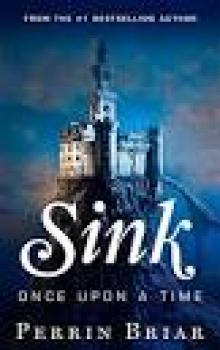 Sink: Once Upon A Time
Sink: Once Upon A Time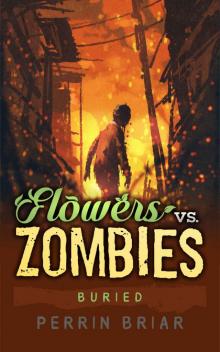 Flowers Vs. Zombies (Book 5) Buried
Flowers Vs. Zombies (Book 5) Buried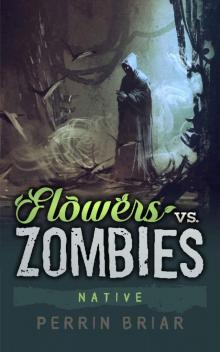 Flowers Vs. Zombies (Book 6) Native
Flowers Vs. Zombies (Book 6) Native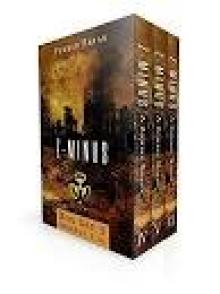 Z-Minus Box Set 2
Z-Minus Box Set 2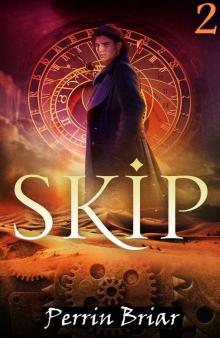 Skip: An Epic Science Fiction Fantasy Adventure Series (Book 2)
Skip: An Epic Science Fiction Fantasy Adventure Series (Book 2)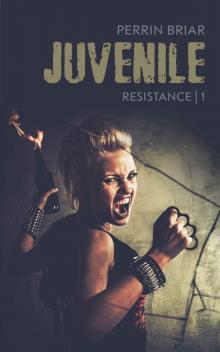 Resistance (Book 1): Juvenile
Resistance (Book 1): Juvenile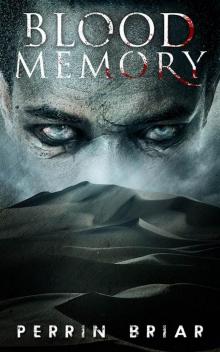 Blood Memory: A Post-Apocalypse Series (Book Five)
Blood Memory: A Post-Apocalypse Series (Book Five)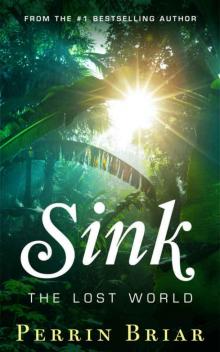 Sink: The Lost World
Sink: The Lost World![Z-Minus Box Set [Books 1-3] Read online](http://i1.bookreadfree.com/i1/03/30/z-minus_box_set_books_1-3_preview.jpg) Z-Minus Box Set [Books 1-3]
Z-Minus Box Set [Books 1-3]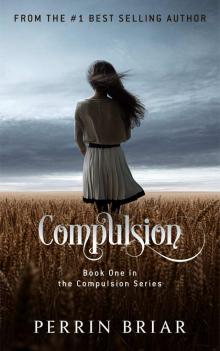 Compulsion
Compulsion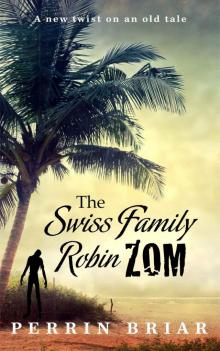 The Swiss Family RobinZOM (Book 3)
The Swiss Family RobinZOM (Book 3)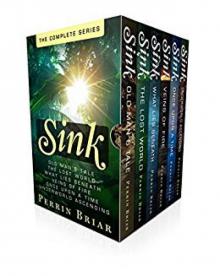 Sink: The Complete Series
Sink: The Complete Series Expulsion
Expulsion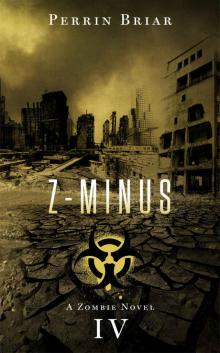 Z-Minus (Book 4)
Z-Minus (Book 4) Resistant Box Set
Resistant Box Set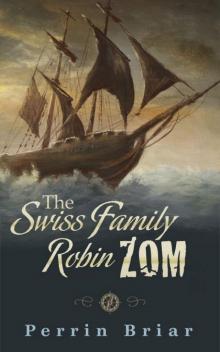 The Swiss Family RobinZOM (Book 2)
The Swiss Family RobinZOM (Book 2)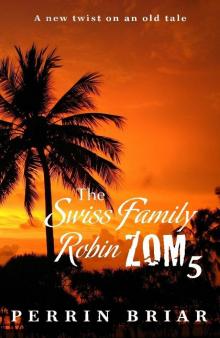 The Swiss Family RobinZOM (Book 5)
The Swiss Family RobinZOM (Book 5)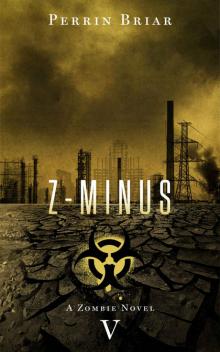 Z-Minus (Book 5)
Z-Minus (Book 5)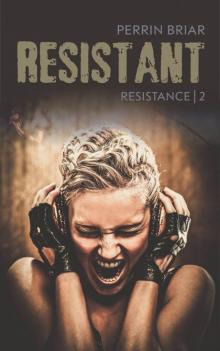 Resistance (Book 2): Resistant
Resistance (Book 2): Resistant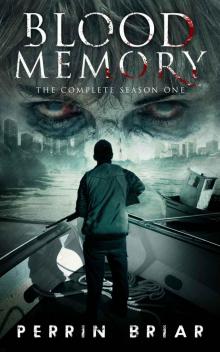 Blood Memory: The Complete Season One (Books 1-5)
Blood Memory: The Complete Season One (Books 1-5)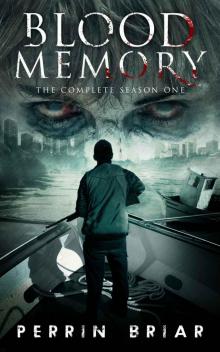 Blood Memory (Season 1): Books 1-5
Blood Memory (Season 1): Books 1-5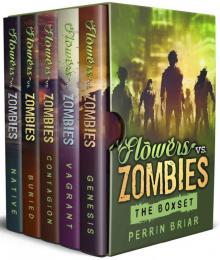 Flowers Vs. Zombies: The Complete Series
Flowers Vs. Zombies: The Complete Series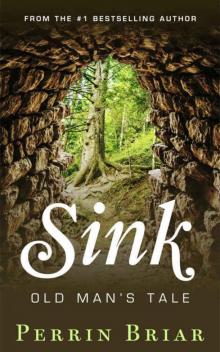 Sink: Old Man's Tale
Sink: Old Man's Tale![Cut Off [Part 1] Read online](http://i1.bookreadfree.com/i2/04/06/cut_off_part_1_preview.jpg) Cut Off [Part 1]
Cut Off [Part 1]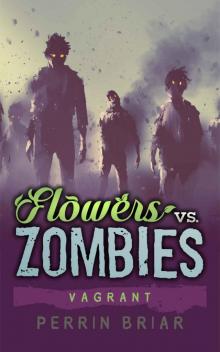 Flowers vs. Zombies (Book 2): Vagrant
Flowers vs. Zombies (Book 2): Vagrant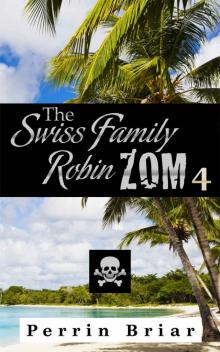 The Swiss Family RobinZOM (Book 4)
The Swiss Family RobinZOM (Book 4)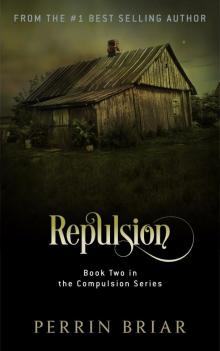 Repulsion (Compulsion Book 2)
Repulsion (Compulsion Book 2)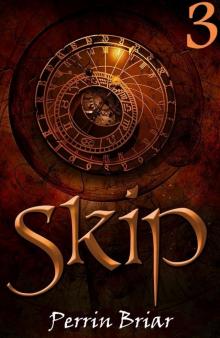 Skip: An Epic Science Fiction Fantasy Adventure Series (Book 3)
Skip: An Epic Science Fiction Fantasy Adventure Series (Book 3)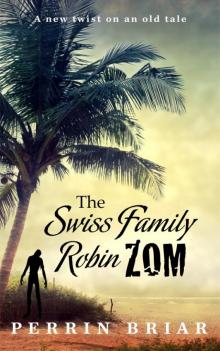 The Swiss Family RobinZOM
The Swiss Family RobinZOM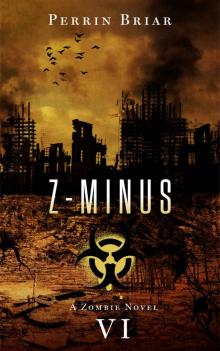 Z-Minus (Book 6)
Z-Minus (Book 6)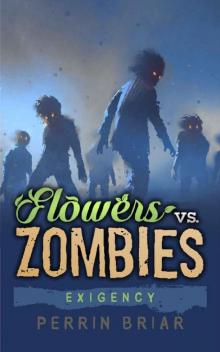 Flowers vs. Zombies (Book 4): Exigency
Flowers vs. Zombies (Book 4): Exigency![[An Epic Fantasy 01.0] Skip Read online](http://i1.bookreadfree.com/i2/04/12/an_epic_fantasy_01_0_skip_preview.jpg) [An Epic Fantasy 01.0] Skip
[An Epic Fantasy 01.0] Skip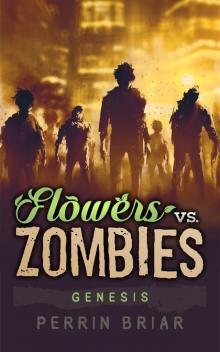 Flowers Vs. Zombies: Genesis
Flowers Vs. Zombies: Genesis